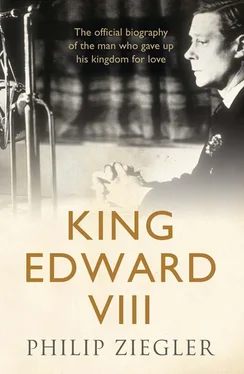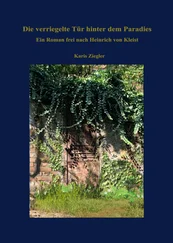‘The whole crux is whether the Prince of Wales makes the Indians feel he likes them,’ Lord Riddell told Cromer. ‘They are extraordinarily sensitive and they know intuitively, past belief.’ 54The Prince did not like them; least of all did he like those to whom he came closest, the Indian rulers. He disapproved of the pomposity and lavishness of their way of life; their propensity to ape all the most unattractive features of European civilization; their determination to ingratiate themselves with the son of the King Emperor. In Nepal tigers were paraded before him so that it was almost impossible for him to miss them; in Mysore the Maharaja let him win at squash. After this last offence he raged vengefully against those ignoble potentates and cannot have left the Maharaja himself in much doubt about his feelings. 55
Since the Prince at the time was suffering from insomnia, indigestion and what he described as ‘smoker’s heart’, his bile is perhaps explicable. His staff should have been able to jolly him out of such excesses. Unfortunately only Mountbatten was close enough to him to understand his moods, and Mountbatten was preoccupied with his own courtship of Edwina Ashley. The Prince luxuriated in his sense of isolation. His staff, he told Freda Dudley Ward, was ‘the finest ground possible for foul and bloody gossip and scandal!! … They do their utmost to make life hell for me instead of helping me.’ 56Before the tour was over Halsey offered his resignation on the grounds that he felt he had lost the Prince’s confidence. ‘How right he is, isn’t he, my precious angel, though I said it was all rot … He knows better now than to say a word to me about TOI or anything private as he knows I would fire him on the spot.’ 57Already the Prince’s reluctance to allow even the most trusted members of his staff to talk to him about what he considered his private life was becoming more marked. Godfrey Thomas no longer dared speak with the freedom he had enjoyed in the past, Claud Hamilton was to lose his job when he trespassed on forbidden territory. The Prince’s attitude, strengthened to the point of paranoia, was to make it impossible for those who worked for him to do their duty properly in the years before the abdication.
His alienation from his regular staff became more complete when Captain Edward ‘Fruity’ Metcalfe was recruited to look after the Prince’s polo and other equine diversions. Metcalfe was charming and impecunious; an Irishman who had won a good MC in the war and held important posts in three princely states. He was ‘very nice and irresponsible’, Thomas told the Queen. 58Halsey was still more censorious: ‘Metcalfe is not at all a good thing for HRH,’ he wrote. ‘He is an excellent fellow, always cheery and full of fun, but far, far too weak and hopelessly irresponsible. He is a wild, wild Irishman and’ – crowning horror – ‘no one knows anything about his family.’ 59The Prince was seduced by his charm, his friendliness and his endearing habit of treating his new employer as an ordinary human being: ‘He always referred to me as “The Little Man”. People were sometimes shocked by the familiarity of his attitude towards me.’ 60He became the nearest approach the Prince ever had to an intimate male friend. ‘Honestly, and you must know it by now,’ the Prince wrote to him a year or so after they first met, ‘I miss you terribly when you are away, and … I’m ever so grateful to you for being the marvellous friend to me you always have been.’ 61Against his dulcet blandishments the stern voice of duty as enunciated by Halsey or Thomas seemed still less appealing. His coming placed a barrier between the Prince and those who should have been closest to him.
This catalogue of lamentations may make it sound as if the tour of India had been a total disaster. This would not be true. In the first port of call, Bombay, he achieved something close to triumph. The Viceroy rhapsodized about his ‘wonderful success’. ‘It represents solid truth,’ he told Montagu, ‘when I tell you that the Prince did receive a splendid reception … and by his unaffected manner and simple heartiness and friendliness to the people, won his way right into their hearts.’ 62The Governor, Sir George Lloyd, told Cromer that the success was due ‘entirely to the chief actor, whose personality is amazing and whose gift of keen appreciation of every situation in a flash, of the perfect word to say and the perfect way to say it in, struck me tremendously’. 63Even the Prince, always first to doubt his own capabilities, told Freda Dudley Ward that he would have been driven mad by the tedium of the official receptions ‘except for the fact that I am having a real success here, my beloved, and I think I’ve managed to get these natives’. 64
Gandhi’s campaign ensured that he was not usually so successful, but the Congress Party did not achieve as much as it had hoped. In Delhi, in particular, all went well for the visitor. ‘I feel as if I had lived a life time these last two days,’ Lady Reading told her family. ‘Such processing of troops, booming of guns. Royal salutes … acres of red carpet, hundreds of scarlet coats, thousands of decorations.’ The Vicereine did not realize it, but she was describing everything her visitor most disliked. Still, ‘the Prince was splendid and played up nobly’. 65By this stage in the tour, Reading believed that the Prince was much more satisfied with his visit and taking a real interest in India. ‘I … am glad to find that he is willing to take trouble to understand the difficulties of the situation here. He has, undoubtedly, shrewd perceptions and is not misled by the outward glamour …’ 66He was not misled, either, by the Viceroy’s accomplished line in flattery. Proposing the royal visitor’s health at a banquet in Delhi, Reading ascribed every conceivable virtue to the Prince and spoke of the tour as if it had transformed the future of India. ‘You just can’t think how much that man has deteriorated,’ commented the Prince. 67
Yet the Viceroy was not just being sycophantic. It was no smooth-tongued statesman, but the police officer attached to the Prince, Mr Stead, who said that he had at first been opposed to the tour but by the time it had finished he was convinced he had been wrong. ‘It had gone infinitely better than he had thought possible, and … the good that it had done was incalculable.’ 68A question was put down in the House of Commons suggesting that the Prince should have conferred on him the title of ‘Prince of India’. The King opposed the idea and it was dropped. 69If he had not done so, his son would have proved even more reluctant. But the idea was not altogether foolish.
The rest of the trip, though longer than the Prince wished, was less taxing. For one thing, he did not have to cope with a hostile independence movement; for another, he was on the way home. He had badly wanted to visit China. ‘It does seem very hard,’ he told the King, ‘that when one has come all this long way to the Far East … I shouldn’t be able to go to Pekin, Shanghai, and other places of interest, all far more interesting than Japan, and the Chinks are much nicer people too.’ 70The Foreign Secretary, Curzon, vetoed the idea however, and the Prince got no nearer than Hong Kong.
His determination not to find Japan interesting lasted throughout his stay there. The Ambassador, Sir Charles Eliot, noted with regret that he showed no curiosity in the institutions or government of the country and seemed bored by any discussion of the issues of the moment – ‘I think that really he was mentally fatigued and that his mind and nerves had not recovered from the strain of his journey in India.’ 71Eliot also realized how dull everything must appear on a royal tour: ‘Princes must think that red carpets and flags are a kind of vegetation that grows everywhere like grass or trees. It certainly makes all places look the same, and the welcome organized by the police was also monotonous.’ 72But even allowing for the bland and homogenized aspect of the country which was offered him – royalty’s equivalent of the tourist proceeding from Hilton Hotel to Hilton Hotel – the Prince does seem to have been over-ready to transmute Japanese gold to lead. Even the famed scenery he despised: ‘I don’t take much interest in it at any time and none at all sans TOI,’ he told Freda Dudley Ward, ‘and having been to Lake Louise and the Canadian Rockies with Scotland thrown in, I can’t ever hope to see anything better.’ 73
Читать дальше












